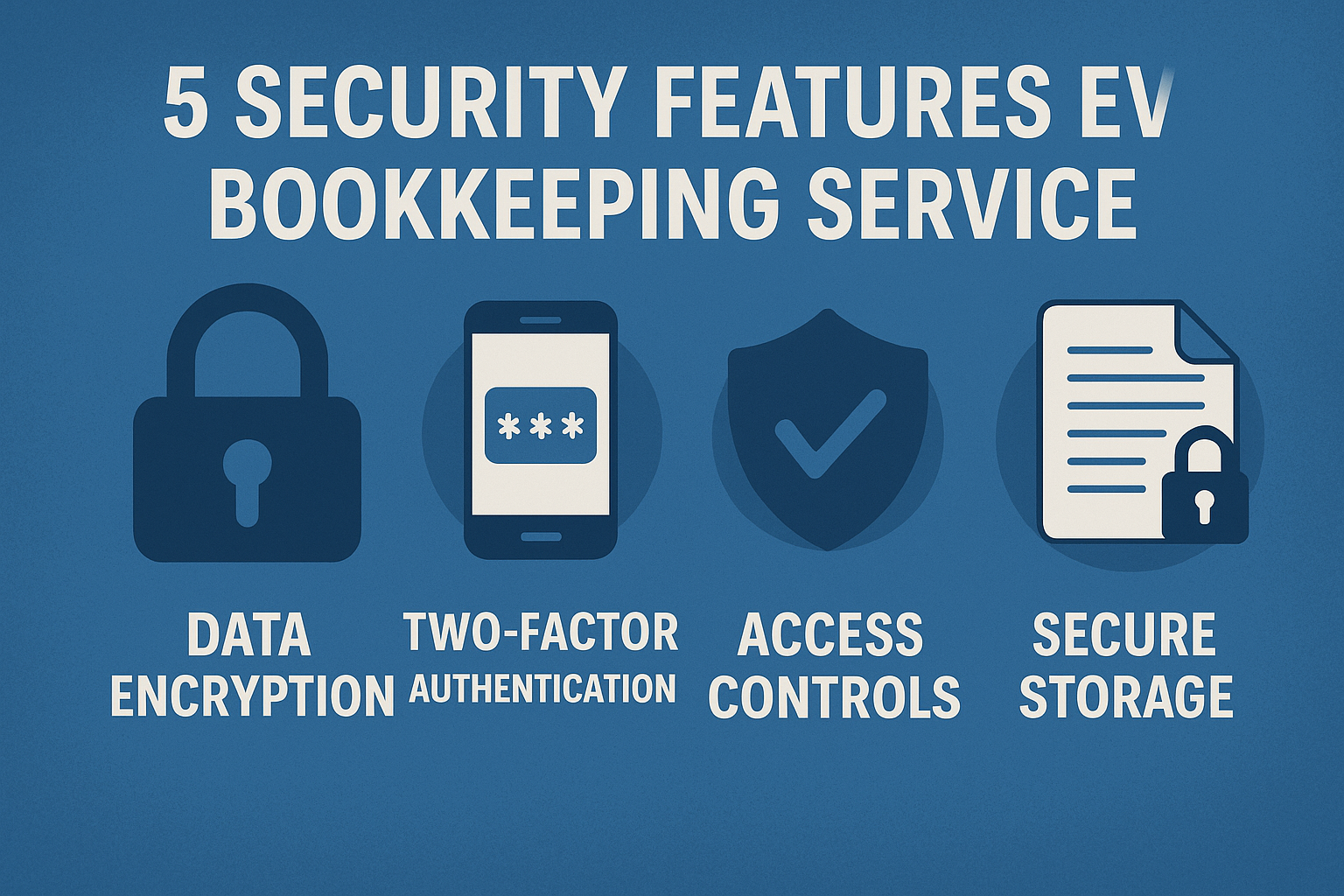
When you hand over your financial data to a bookkeeping service, you’re not just outsourcing admin work — you’re trusting someone with your most sensitive business information.
A great bookkeeping service doesn’t just keep your numbers in order. It keeps your data safe, private, and secure. Whether you’re a startup or a growing SME, here are five must-have security features to look for when evaluating a provider.
Strong encryption is non-negotiable.
Your bookkeeping service should encrypt data:
Why it matters: encryption ensures that even if someone intercepts your data, it remains unreadable. This is one of the strongest protections against data theft or breaches.
💡 Pro tip: Ask providers what encryption standards they use (e.g., AES-256) and whether they undergo external security audits.
The best encryption means little if someone can log into your account with a stolen password. That’s why multi-factor authentication (MFA) is essential.
A secure bookkeeping platform should:
This minimizes both external and internal risks, giving you more control over your data.
Even secure systems can fail. The real question is: how fast can your data be recovered?
A trustworthy bookkeeping service will:
This ensures your financial records are safe — even in the event of a cyberattack, hardware failure, or natural disaster.
Bookkeeping involves sensitive financial and personal data. Reputable providers will follow strict data protection regulations and industry standards.
Look for:
A service that can’t explain its compliance practices clearly is a red flag.
Your bookkeeping platform may connect to your bank, CRM, payment systems, or expense management tools. Every connection is a potential security risk — unless it’s done properly.
The right provider should:
Platforms like ccMonet also reduce risks by automating workflows without increasing human touchpoints — meaning fewer opportunities for errors or unauthorized access.
Security shouldn’t be an afterthought when choosing a bookkeeping service — it should be a dealbreaker.
By ensuring your provider has:
…you’re not just protecting your books — you’re protecting your entire business.
✨ ccMonet helps SMEs and startups automate bookkeeping while keeping security at the core.
👉 Discover ccMonet and see how automation and protection can work hand in hand.